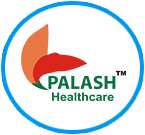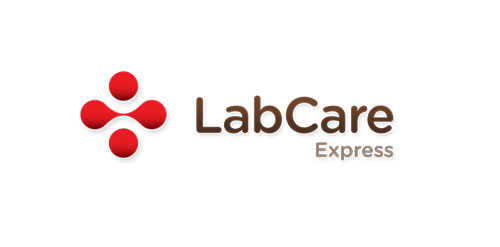Description

FP-LIMS

Palash
Comprehensive Overview: FP-LIMS vs Palash
FP-LIMS (Flexible Paperless Laboratory Information Management System) is a type of software solution designed to improve the efficiency, accuracy, and management of data storage and processing in laboratory environments. Let's look at the primary functions, target markets, market comparisons, and differentiating factors:
a) Primary Functions and Target Markets
Primary Functions
-
Data Management: FP-LIMS offers robust data management capabilities, allowing laboratories to capture, store, and organize a large volume of data effectively. Users can manage sample tracking, test processing, and result analysis.
-
Workflow Automation: The system automates various laboratory processes, thereby reducing manual intervention, lowering the likelihood of human error, and improving overall efficiency.
-
Compliance and Reporting: FP-LIMS helps laboratories comply with industry standards and regulations (such as ISO and FDA requirements) through comprehensive reporting functionalities. It can generate reports and audits, maintain chain-of-custody, and ensure quality control.
-
Integration: The software can integrate with other laboratory instruments and systems, facilitating seamless data exchange and process harmonization.
-
Scalability and Flexibility: Designed to accommodate various laboratory sizes and types, FP-LIMS is scalable and flexible, allowing for customization according to specific laboratory needs.
Target Markets
- Pharmaceuticals and Biotechnology: For managing complex testing and compliance requirements.
- Chemical and Petrochemical Industries: To optimize testing processes and manage data efficiently.
- Environmental and Water Testing Labs: For streamlined data collection and reporting.
- Food and Beverage Industry: Ensuring safety and compliance through meticulous data management.
- Clinical and Healthcare Laboratories: Managing patient data and test results efficiently.
b) Market Share and User Base
FP-LIMS is one of many LIMS solutions available on the market, competing with major players like LabWare, STARLIMS, and Thermo Fisher Scientific. Market share and user base can vary significantly depending on the region, industry-specific needs, and specific capabilities of various systems.
-
Market Share: While exact market share figures for FP-LIMS are not universally available, it is generally known as a niche player compared to larger, more established products. It may have a significant share in regions where smaller to mid-sized laboratories prevail that require tailor-made solutions.
-
User Base: FP-LIMS tends to attract small to medium-sized enterprises (SMEs) due to its flexibility, customization capabilities, and cost-effectiveness compared to more comprehensive, but more expensive, LIMS solutions.
c) Key Differentiating Factors
-
Customizability: FP-LIMS offers a high level of customization compared to some competitors. This allows laboratories to tailor the software according to their unique processes and requirements.
-
Cost-Effectiveness: It tends to be more cost-effective, especially for smaller laboratories. Its pricing structure is competitive and appealing to laboratories with limited budgets.
-
User-Friendly Interface: FP-LIMS is designed with a focus on ease of use, making it easier for laboratory staff to adopt and use without extensive training.
-
Flexibility in Deployment: FP-LIMS can be deployed on-premise or in the cloud, providing flexibility based on the laboratory's infrastructure preferences and IT capabilities.
-
Broad Integration Capabilities: Effective integration features allow FP-LIMS to work seamlessly with existing laboratory instruments and external systems, enhancing interoperability and data flow.
Overall, FP-LIMS positions itself as a versatile and adaptable LIMS solution targeting laboratories that prioritize flexibility, ease of integration, and cost-efficiency. Larger enterprises needing a more comprehensive system might still opt for other major players in the industry, depending on their resource and technological needs.
Contact Info

Year founded :
Not Available
Not Available
Not Available
Not Available
Not Available

Year founded :
2015
Not Available
Not Available
India
Not Available
Feature Similarity Breakdown: FP-LIMS, Palash
When comparing FP-LIMS and Palash LIMS, it's important to consider their core functionalities, user interfaces, and any unique features that differentiate them. Here's a breakdown based on common aspects of LIMS (Laboratory Information Management Systems):
a) Core Features in Common:
- Sample Management: Both FP-LIMS and Palash offer robust sample management capabilities, allowing users to track, manage, and document samples efficiently.
- Data Management and Storage: They provide secure data handling and storage solutions, including support for large datasets and integration with various databases.
- Quality Control: Both systems offer quality control and assurance features to ensure the accuracy and reliability of laboratory results.
- Reporting and Analytics: They enable users to generate detailed reports and perform data analysis, helping labs to gain insights into operational efficiency and research outcomes.
- Compliance and Regulation Support: These LIMS platforms support compliance with industry regulations, including ISO standards and Good Laboratory Practice (GLP).
- Integration Capabilities: Both systems are designed to integrate with existing laboratory instruments and external systems, facilitating seamless data flow.
b) User Interface Comparison:
- FP-LIMS: Known for its intuitive user interface, FP-LIMS typically offers a user-friendly experience with customizable dashboards and workflows. The interface often emphasizes simplicity and ease of use, which can help reduce training time for new users.
- Palash LIMS: Palash also provides a user-centric design, focusing on a streamlined interface that caters to the needs of laboratory personnel. The interface tends to be visually appealing and might offer more customization options for specific industry needs.
c) Unique Features:
-
FP-LIMS:
- Extended Customization: FP-LIMS might provide extensive customization options for modules and processes, allowing labs to tailor the system according to their specific requirements.
- Industry-Specific Solutions: FP-LIMS often offers solutions tailored to specific industries such as pharmaceuticals, environmental research, or food safety, which may include specialized modules or workflows.
-
Palash:
- AI and Machine Learning Integration: Palash might offer advanced AI and machine learning features that enhance data processing and predictive analytics, setting it apart in terms of leveraging cutting-edge technology.
- Mobile Accessibility: Palash could provide superior mobile support, allowing users to access the LIMS on various devices such as tablets and smartphones, improving flexibility for lab management.
Each LIMS system brings its own strengths, and the choice between FP-LIMS and Palash LIMS may ultimately depend on specific business needs, industry requirements, and the user's preference for interface design and unique functionalities.
Features

Data Management
Reporting and Compliance
Workflow Automation
Sample Management
User Interface and Accessibility

Powerful Analytics
User-Friendly Interface
Reliable Security
Collaboration Tools
Best Fit Use Cases: FP-LIMS, Palash
FP-LIMS and Palash are both software solutions that serve distinct purposes within the realm of laboratory information management. Here's an overview of their best fit use cases:
FP-LIMS
a) Types of Businesses or Projects:
- Manufacturing Industries: FP-LIMS is well-suited for manufacturing businesses that need precise and consistent quality control. Industries like automotive, aerospace, and metal production often require rigorous testing and documentation, making FP-LIMS an ideal choice.
- Chemical and Pharmaceutical Industries: These industries benefit greatly from FP-LIMS due to its ability to handle complex testing procedures, regulatory compliance, and comprehensive data management.
- Food and Beverage Industry: Companies needing tight controls on quality assurance processes can leverage FP-LIMS for real-time testing and traceability in their supply chains.
- Environmental Testing and Research Laboratories: FP-LIMS helps in managing the vast data outputs from environmental testing, providing accuracy and regulatory compliance capabilities.
Palash
b) Preferred Scenarios:
- Educational Institutions: Palash is particularly useful for managing laboratory operations in educational settings where resources may be limited, and ease of use is a priority.
- Smaller Research Facilities or Start-ups: Organizations with limited IT infrastructure or budget constraints may find Palash's simplicity and cost-effectiveness beneficial.
- Non-complex Testing Environments: For labs focusing on straightforward testing and data management, Palash offers a streamlined solution without the need for extensive customization.
Catering to Different Industry Verticals or Company Sizes:
FP-LIMS:
- Industry Verticals: FP-LIMS is crafted to meet the demands of high-stakes industries like pharmaceuticals, manufacturing, and food processing, where compliance and rigorous testing are non-negotiable.
- Company Sizes: It caters to medium to large enterprises that have the resources for a more robust LIMS solution. These companies often require integration with other enterprise systems and have complex workflows that FP-LIMS can handle.
Palash:
- Industry Verticals: Palash may cater to less regulated industries or those with simpler data management needs. Its straightforward functionalities suit educational labs, basic research facilities, and smaller-scale operations.
- Company Sizes: Ideal for small to medium-sized companies or laboratories due to its affordability and ease of deployment. Its simplicity aids businesses without dedicated IT departments.
In summary, FP-LIMS is well-suited for complex and regulated environments requiring comprehensive data management, while Palash is more appropriate for smaller, resource-limited settings with straightforward needs. Each product thus caters to distinct requirements based on industry, scale, and complexity of operations.
Pricing

Pricing Not Available

Pricing Not Available
Metrics History
Metrics History
Comparing undefined across companies
Conclusion & Final Verdict: FP-LIMS vs Palash
To provide a conclusion and final verdict for FP-LIMS and Palash, let's address each of the points you mentioned:
a) Considering all factors, which product offers the best overall value?
The best overall value between FP-LIMS and Palash will depend on your specific needs and the context in which you plan to use the software. Both FP-LIMS and Palash offer robust capabilities in laboratory information management, but they may excel in different areas or suit different types of operations. FP-LIMS is generally recognized for its versatility and adaptability to various laboratory environments, often appealing to larger organizations with a broad spectrum of testing requirements. Palash may offer a more tailored solution with specific industry focus or regional support, potentially offering more value to businesses in those niches.
b) What are the pros and cons of choosing each of these products?
-
FP-LIMS:
- Pros:
- Versatile and can be customized to fit a wide range of laboratory settings.
- Typically includes comprehensive features for data management, compliance, and quality control.
- Good integration capabilities with other systems and instruments.
- Cons:
- May be more complex and require more resources for implementation and training.
- Pricing could be higher, reflecting its extensive features and customization.
- Pros:
-
Palash:
- Pros:
- Could be more user-friendly with a focused interface for specific industry applications.
- May offer more competitive pricing, particularly for smaller businesses or those in specific sectors.
- Potentially stronger local support and service if operated by a regional provider.
- Cons:
- Might lack some advanced features that are available in more comprehensive systems like FP-LIMS.
- Could have limitations in scalability or integration capabilities with other systems.
- Pros:
c) Are there any specific recommendations for users trying to decide between FP-LIMS vs Palash?
Users should consider the following when deciding between FP-LIMS and Palash:
-
Assess Your Needs: Determine the specific features and capabilities that are critical for your laboratory operations. Consider factors like required integrations, compliance needs, scalability, and the complexity of your data management tasks.
-
Budget Considerations: Evaluate your budget and the total cost of ownership, including initial implementation, licensing, and ongoing maintenance costs.
-
Trial and Support: If possible, conduct a trial or demo of each product to get a hands-on sense of usability and functionality. Consider the level of customer support and training provided by each vendor.
-
Long-term Strategy: Consider your long-term goals for laboratory management and whether you may need to scale your operations, which could influence the importance of features like adaptability and integration with other business systems.
Ultimately, both FP-LIMS and Palash could offer significant benefits, but the best choice will align closely with your organization’s specific requirements and strategic goals.
Add to compare
Add similar companies




